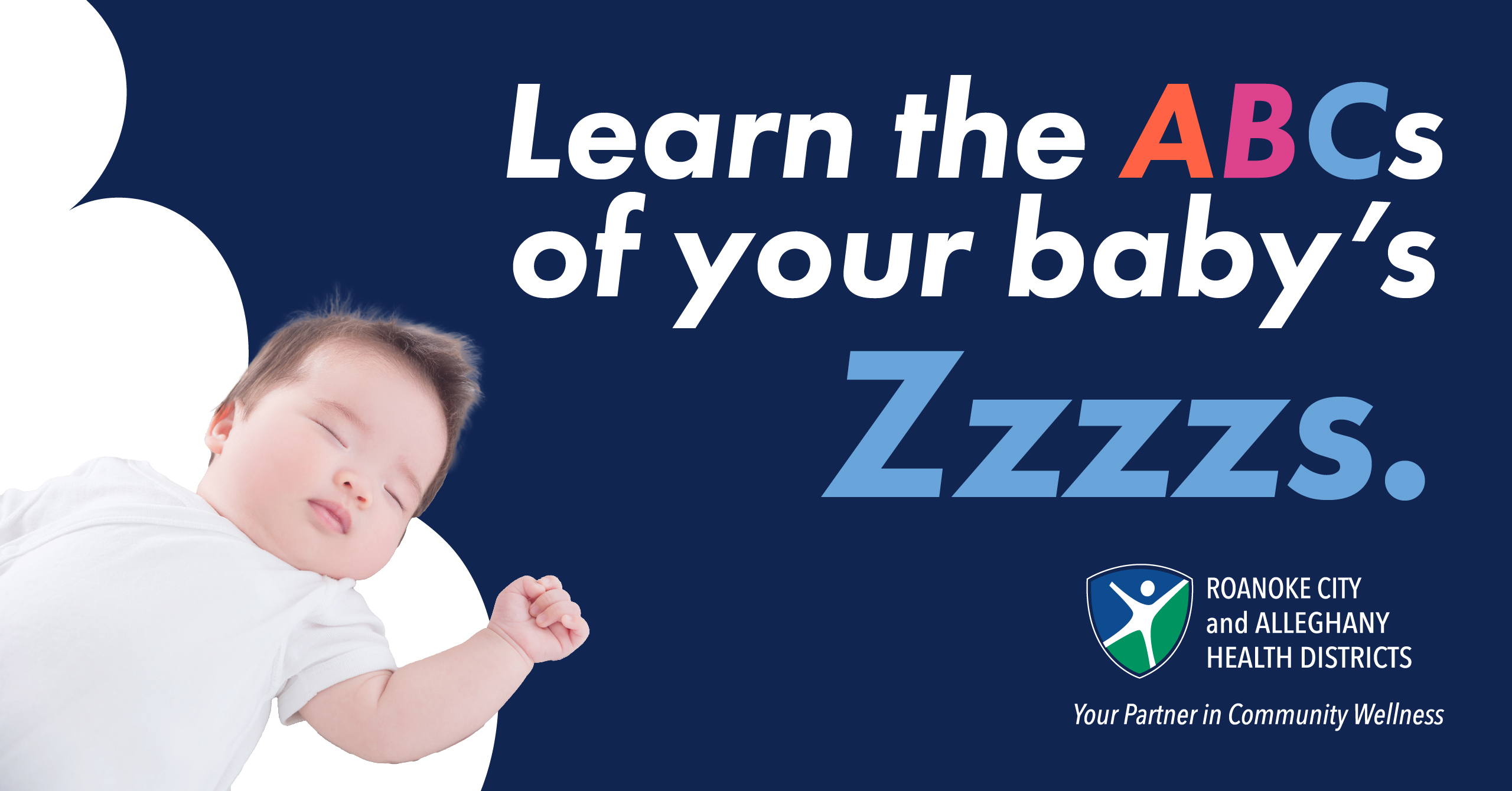

Need a safe sleep space for your baby?
Call your local health department to sign up for our complimentary Safe Sleep Class. Upon completion you will receive a FREE Pack ‘N Play for each eligible child! Morning, evening, and Spanish classes are available.
Unsafe sleep is the leading cause of non-natural infant death in Virginia, with Sudden Unexpected Infant Death (SUID) accounting for approximately 3,500 deaths in the United States annually. Despite the dangers, a recent Longitudinal Infant and Family Environment (L.I.F.E.) study funded by the Virginia Department of Social Services revealed that many caregivers continue to use soft bedding, which increases the risk of SUID, along with pillows or stuffed toys, which can cause accidental suffocation or strangulation in bed. You can help minimize the risk of sleep-related infant death by following simple, life-saving practices each time an infant is placed to sleep.
The American Academy of Pediatrics (AAP) reports nearly one in five sleep-related deaths occur while an infant is in the care of someone other than a parent or usual caregiver. It is vital that everyone caring for a baby, including child care providers, grandparents, foster parents, and siblings, are aware and adopt the following practices when placing an infant to sleep:

Alone:
Babies should sleep by themselves, in their own sleep space with no other people. Room-sharing is recommended but bedsharing is not. Keep pillows, blankets, toys, stuffed animals, and all other soft items out of the sleep space. Babies can use a pacifier in the crib if it is not attached to the baby, their clothes, or any part of the crib. If a pacifier falls out of their mouth, that’s ok.

Alone:
Babies should sleep by themselves, in their own sleep space with no other people. Room-sharing is recommended but bedsharing is not. Keep pillows, blankets, toys, stuffed animals, and all other soft items out of the sleep space. Babies can use a pacifier in the crib if it is not attached to the baby, their clothes, or any part of the crib. If a pacifier falls out of their mouth, that’s ok.

Back:
Place infants on their backs for sleep. They will eventually learn how to roll from back to tummy and tummy to back. Once they can confidently roll over both ways on their own, it’s ok to leave them like that, but always place them on their back initially.

Back:
Place infants on their backs for sleep. They will eventually learn how to roll from back to tummy and tummy to back. Once they can confidently roll over both ways on their own, it’s ok to leave them like that, but always place them on their back initially.

Crib:
Use a crib, bassinet, or portable play yard with a firm, flat mattress and a fitted sheet. That’s it! The crib should not have bumpers of any kind, and nothing should be attached to the crib, such as a monitor or a mobile. Babies can sleep in a swaddle, but swaddling stops being safe once babies can roll over. When babies roll onto their stomach while swaddled, they may not be able to return to the back position and their airway can become obstructed. After a baby has outgrown a swaddle, they can sleep while wearing a sleep sack with their arms out.

Crib:
Use a crib, bassinet, or portable play yard with a firm, flat mattress and a fitted sheet. That’s it! The crib should not have bumpers of any kind, and nothing should be attached to the crib, such as a monitor or a mobile. Babies can sleep in a swaddle, but swaddling stops being safe once babies can roll over. When babies roll onto their stomach while swaddled, they may not be able to return to the back position and their airway can become obstructed. After a baby has outgrown a swaddle, they can sleep while wearing a sleep sack with their arms out.
We all have an important role to play in keeping Virginia's children safe. Let's work together to bring greater awareness to safe sleep practices, and ensure infants have a safe and healthy start in life. Learn more about safe sleep practices.
